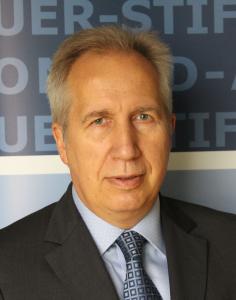The global super election year 2024 will also see the largest elections in the history of the world's most populous Spanish-speaking country: In Mexico, 97.6 million eligible voters will decide on more than 20,000 mandates at all levels of government. This includes a new legislature and the office of head of state, which will be held by a woman for the first time. But the political cards are also being reshuffled in many of the 32 federal states, with governorships (cf. prime minister), state parliaments and municipal office holders across the country up for election. The heightened election temperature has been clearly noticeable since the end of last year.
The buzzword "super election year" is often used, but from a global perspective, it has hardly ever been more justified than in 2024. Almost half of the world's population lives in countries where political leaders will be elected this year. Never before in the history of democracy have so many people been called to the polls in one calendar year, never before have so many been able to vote on the future of their own country, confirm or reject the course of political leaders and possibly usher in new times - albeit under very different conditions. The Russian presidential elections in March, for example, are unlikely to be held in accordance with internationally recognised democratic standards; the result has long been known. Taiwan has already voted, the elections in the United States in November are already at the centre of media attention, as are elections in the European Union, India, Indonesia, Peru, Great Britain, Portugal and Ghana - the list could go on and on.
Politics & elections 2024
The political mood and public debates in Mexico will undoubtedly be determined by the upcoming presidential elections, which will be held on 2 June. According to the constitution, the incumbent President Andrés Manuel López Obrador (AMLO) of the left-wing populist government alliance MORENA (Movimiento Regeneración Nacional) is not allowed to run again; in Mexico, only one so-called sexenio, i.e. a term of office of six years without re-election, is permitted. The selection of candidates for the many different offices has now been completed, the scheduled pre-election campaign phase is over and there is a statutory breathing space until 1 March.
As part of the national elections in the summer, it is not only the office of president that will be reassigned in the federal presidential republic. Among other things, the entire national legislature, i.e. both chambers of Congress, will also be up for election. These are the 128 seats of the Senate (Senado) and the 500 seats of the Chamber of Deputies (Cámara de Diputados). In total, including regional and local levels, over 20,200 posts will be allocated and gubernatorial elections will be held in eight federal states and in the capital district - a mammoth administrative, political and social project that will send out a positive signal of the deeply rooted democratic spirit of the state and its citizens on the one hand, but will also offer major areas of attack due to Mexico's complex structural problems on the other.
MORENA is being replaced for the highest office by the personal favourite of the incumbent President AMLO: Claudia Sheinbaum (61), former mayor of Mexico City among other things, is regarded as a politically experienced and extremely loyal representative of current government policy to AMLO. She primarily wants to continue AMLO's course and government project of the so-called "Fourth Transformation". Her opponent on the side of the opposition alliance of convenience Fuerza y Corazón por México, consisting of the Partido Acción Nacional (PAN) and the other major opposition parties Partido Revolucionario Institucional (PRI) and Partido de la Revolución Democrática (PRD) as well as numerous civil society organisations, is the charismatic, albeit less experienced, Senator Xóchitl Gálvez (60). The field is completed by a candidate from the left-of-centre Movimiento Ciudadano, Jorge Álvarez Máynez (38), who had to replace the pompous governor of Nuevo León Samuel García at short notice and is not considered to have any realistic chances.
Depending on the polling institute, Sheinbaum is currently 20-30 percentage points ahead of Gálvez, although (published) polls in Mexico should be treated with caution: the "hit rate" has been rather modest in recent years. As things stand, however, it is undisputed that Xóchitl Galvez is trailing by a significant margin - anything other than a victory for the governing camp would be a major surprise. However, the presidential election in 2006, where AMLO thought he was already the winner and was overtaken by Felipe Calderón (PAN) shortly before the finish line, has shown that leads can melt away in the months leading up to the election.
In addition to the decision on the presidency, the distribution of seats in Congress is also relevant. A possible qualified majority of the current governing coalition under MORENA would enable far-reaching constitutional changes, which could rightly be considered a democratic regression and pose a real threat to the separation of powers in the country. It is therefore in the interests of all opposition parties involved to fight for every mandate.
The full-length publication is only available in German.



